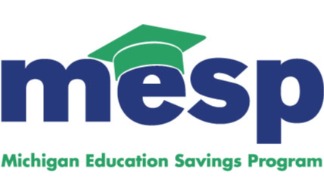

The Michigan Education Savings Program is similar to other TIAA-managed 529 savings programs. The Program features an enrollment year option, six multi-fund options, five single fund options and a principal protection option.
- Program typeSavings
- Inception2000
- State agencyMichigan Department of Treasury
- Tax deduction
- Program ManagerTIAA-CREF Tuition Financing, Inc.
- Program distributorTIAA-CREF Individual & Institutional Services, LLC
Ratings & Rankings
Our overall rating for MI residents
This is a program that offers outstanding flexibility, attractive investments, and additional economic benefits (such as generous state tax incentives) that for some people, at least, will provide a substantial boost to their savings. There are few, if any, weaknesses noted in the program.
Our overall rating for non-residents
This is an excellent program with many benefits for the participant and positive investment attributes. If it has any significant weaknesses then it also has some particularly good things to recommend it.
SAVING FOR COLLEGE’S 5-Cap Ratings provides an evaluation and comparison of 529 plans, utilizing a formula that examines dozens of factors grouped into the following categories.
Eligibility
State residency requirements:
Who can be a participant/owner in the program?
Significant time or age restrictions imposed by the program:
Alternative 529 Plans
Other great plans to consider
You are not limited to opening your own state's 529 plan, so shop around. Here are some highly rated options to consider:
Plan
Our Rating
Fee Score
Performance
Contributions
Maximum contributions:
Minimum contributions:
Does the program offer an e-gifting platform for receiving gift contributions?
Investment Options
Age-based/Enrollment Year investment options:
View more age-based investment optionsStatic investment options:
View more static investment optionsUnderlying investments:
View a full list of this plan’s investment optionsUnderlying fund allocations:
Portfolio Fees & Performance Lookup
See the best 529 plans, personalized for you
A good place to start
Fees & Expenses
Enrollment or application fee:
Account maintenance fee:
Program management fees:
Expenses of the underlying investments:
Total asset-based expense ratio:
Taxes and other Benefits
- Tax deduction for single filers$5,000/yr
- Tax deduction for joint filers$10,000/yr
Example
Married filing jointly residents contributing $100/month can expect an additional $0 a year in tax savings.
Program match on contributions:
State tax deduction or credit for contributions:
State tax recapture provisions:
State definition of qualified expenses
State tax treatment of qualified distributions:
State tax treatment of rollovers:
Does the sponsoring state exclude the value of an account for state financial aid purposes?
Does participation in the program provide beneficiaries with any advantages in qualifying for resident tuition status at state institutions?
Is there a rewards program or outside scholarship program that works with this program?

Upromise Helps Families Save for College